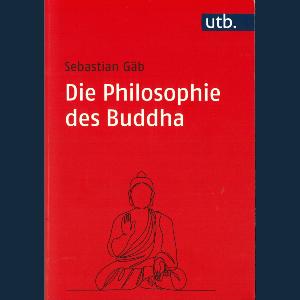Buddha’s teachings for the modern world: a philosophy of life
30 Oct 2024
More than meditation: Buddhism as philosophy and religion. We spoke with philosopher of religion Sebastian Gäb.
30 Oct 2024
More than meditation: Buddhism as philosophy and religion. We spoke with philosopher of religion Sebastian Gäb.
Is Buddhism more a religion or a philosophy?
Sebastian Gäb: With this question, there’s an underlying assumption that it has to be one or the other. Criteria such as “faith” are often considered typical for religions, while philosophy and science are based on experience and knowledge. But religions, including Buddhism, are large and complex phenomena which combine both. Religions always contain philosophical theories about the world, about what is good and bad. If we bracket the typically religious elements, then Buddhism can also be understood as pure philosophy. It depends on the research interests with which you approach Buddhism.
What religious aspects are there in Buddhism?
The “transcendental” is often seen as characteristic of religions – that is to say, something that goes beyond profane everyday reality. In Buddhism, this includes things like the concepts of reincarnation, exiting the cycle of suffering, and attaining nirvana. In lived Buddhism, it also includes religious rituals such as the veneration of Buddhas and institutions such as monasteries.
Buddhism is a very old belief system. What were the circumstances of its historical origins compared to today’s Buddhism – amid the challenges and pressures of the modern world?
The situation in which Buddhism arose resembles the present more than one might suppose. It emerged in a period of social change in India, when people were increasingly questioning the traditional Vedic religion. Against the background of an economy and society that were growing in complexity, there was an increase in social mobility and the breaking out of traditional structures. Like today, people started searching for meaning on their own initiative and developing new ways of thinking and living.

Sebastian Gäb is Professor of Philosophy of Religion at LMU | © privat
One goal of Buddhism is enlightenment – knowledge of the world with all its suffering and release from it. Is this type of experience realistically available in today’s world?
The Buddha said, the path to enlightenment is difficult and requires full commitment, often across many reincarnations. If you want to quickly reach enlightenment, you can activate turbo, so to speak, and withdraw into an ascetic, monastic life. But people can also take the Buddha’s teachings seriously in their everyday lives and gradually approach the goal – even if the ultimate goals of enlightenment and nirvana are still far off and reaching them may extend beyond the next life.
What are the main differences between a ‘Western’ outlook, in which Buddhism is more of a lifestyle, and the actual Buddhist worldview?
In the West, we generally see life as unique – it begins with birth and ends with death and life is just what lies between. Buddhism views our current life as one of many, as part of an ongoing cycle, influenced by karma from past lives. What we experience is not random, but caused by our actions in the past.
What misunderstandings arise from these different outlooks?
We tend to pick out the aspects of Buddhism that best suit our everyday reality. One example is Buddhist mindfulness, the modern Western understanding of which emphasizes the good it does us. But according to the original idea of the Buddha, this practice was meant to take us out of ignorance and make us conscious of the reality of suffering. Buddhist texts recommend, for example, meditating on the various stages of decay of one’s own body. Meditation, then, is not supposed to make everything OK – not immediately in any case – but to make us conscious of the negative sides of life, because only then can they be overcome.
Meditation is supposed to make people conscious of the attachments of suffering. Practitioners seek to attain enlightenment and ultimately nirvana. What is this concept?
Nirvana is the state in which suffering ends and reincarnations come to a halt. What it means beyond that cannot be captured in words, as the Buddha emphasized. Nirvana isn’t just the end of suffering; it’s a state beyond ordinary reality – something that can only be personally experienced but not described. In the deepest and most intensive stages of meditative immersion, maintains the Buddha, you can obtain a foretaste of nirvana, but without remaining permanently in this condition. The ultimate nirvana is attainable only on the death of the body.
Does the teaching of Buddha mean something to you personally?
For me, Buddhism is one of the most fascinating philosophies in the world. I wouldn’t call myself a Buddhist – out of respect for all those who truly live this path. But I practice Buddhist meditation and think that the philosophy of Buddhism can help us better understand ourselves, reality, and existence and orient ourselves within them.

Biography:
Sebastian Gäb is Professor of Philosophy of Religion at LMU. His research focuses on religious language, religious pluralism, and global philosophy of religion as well as classical Chinese and Buddhist philosophy and the philosophy of death an immortality.
Publikation
Sebastian Gäb: Die Philosophie des Buddha. Eine Einführung. [The Philosophy of the Buddha. An Introduction.] Publisher: Narr Francke Attempto UTB 2024. ISBN-13: 978382526201 (German)